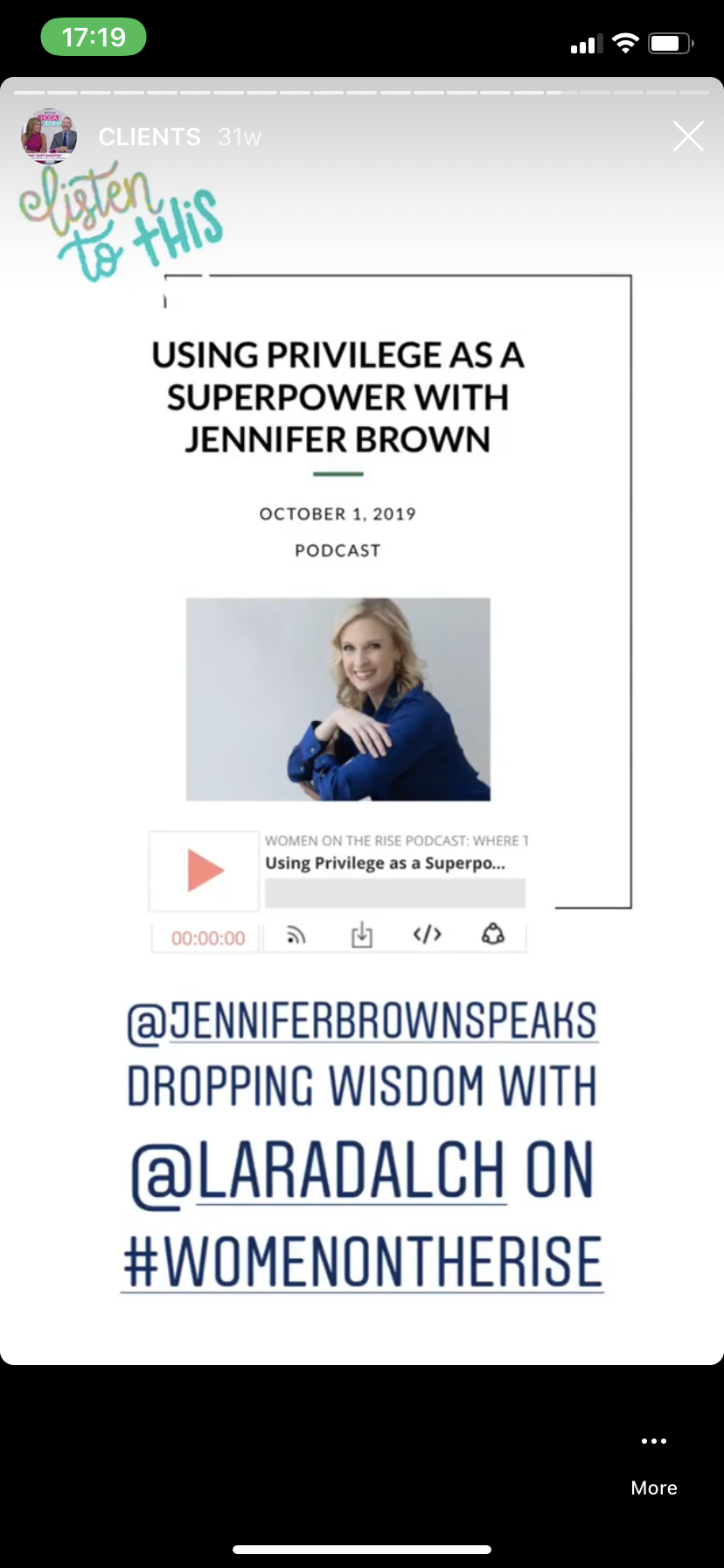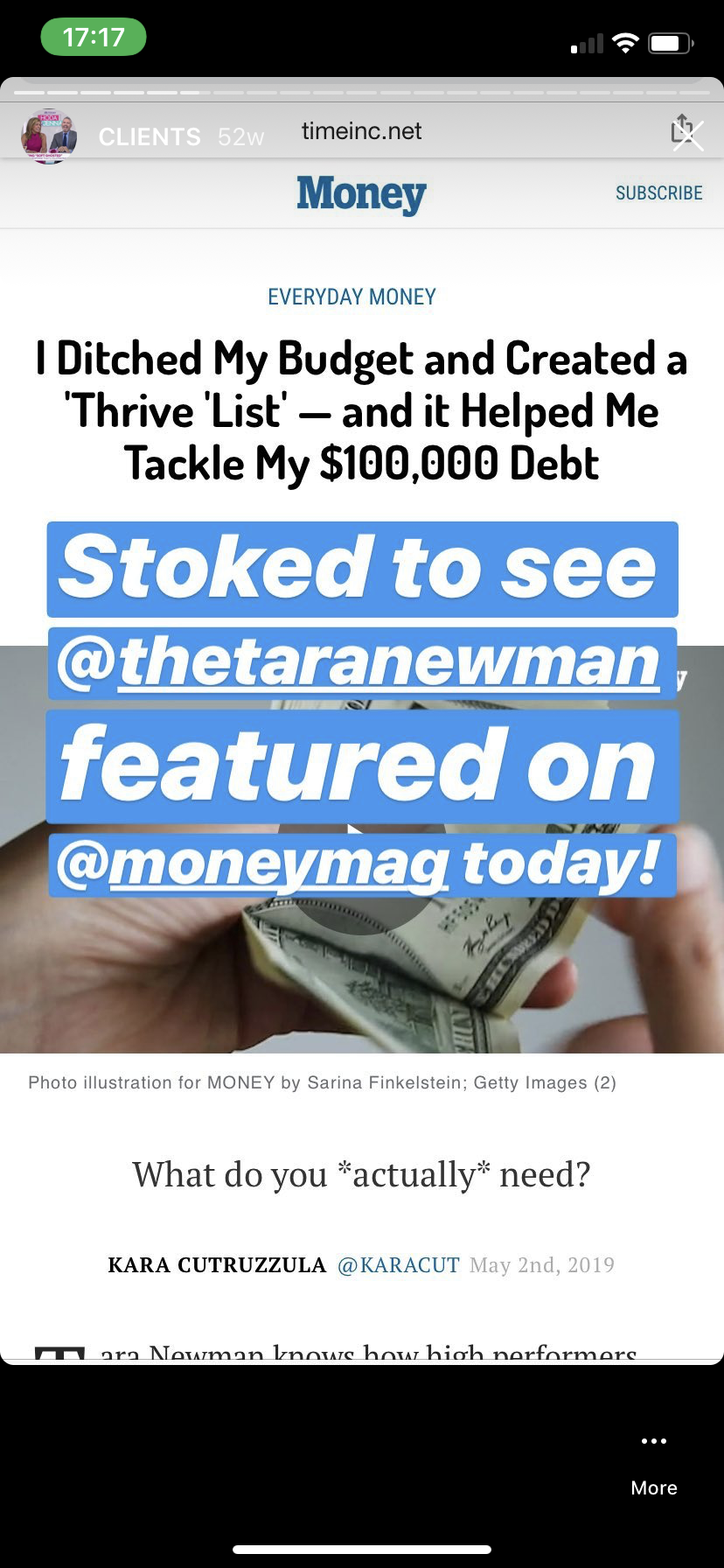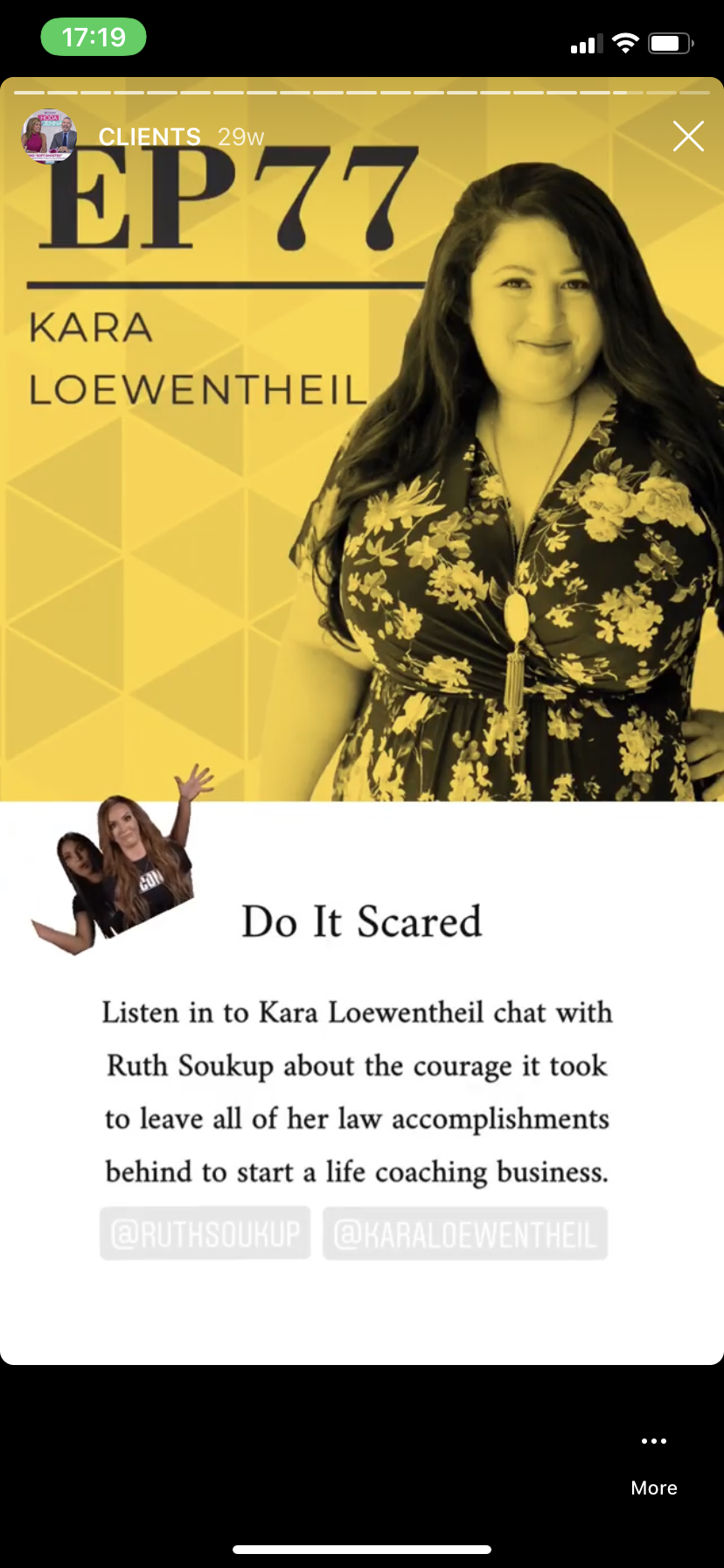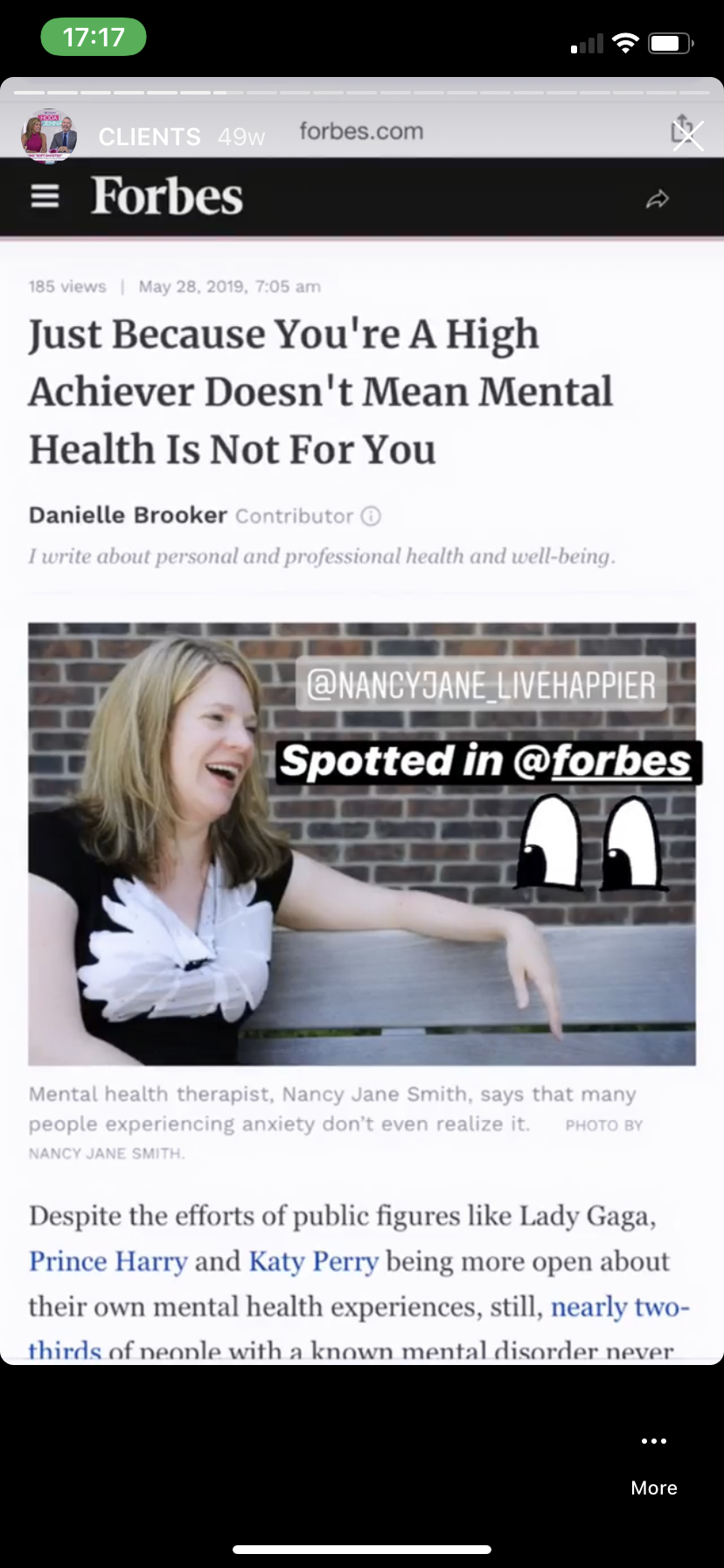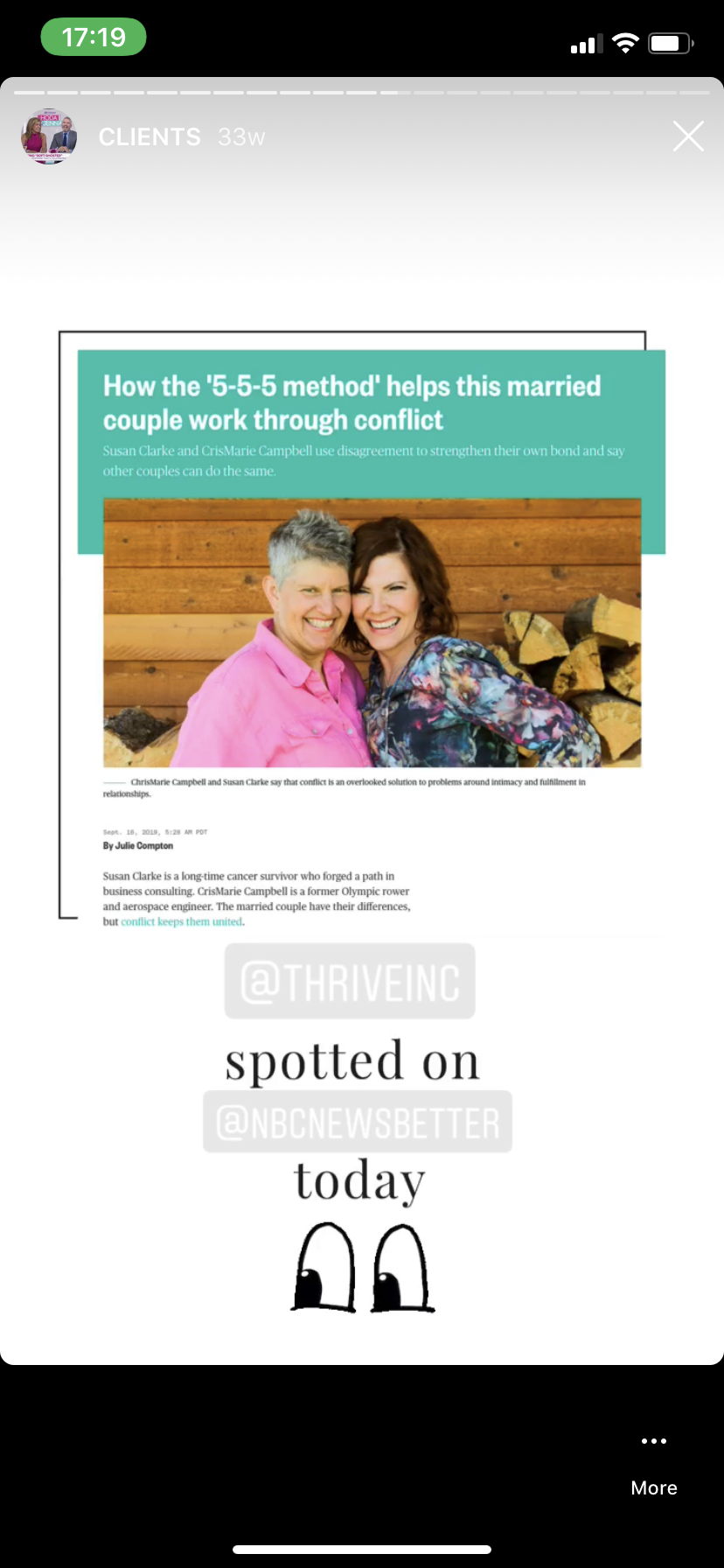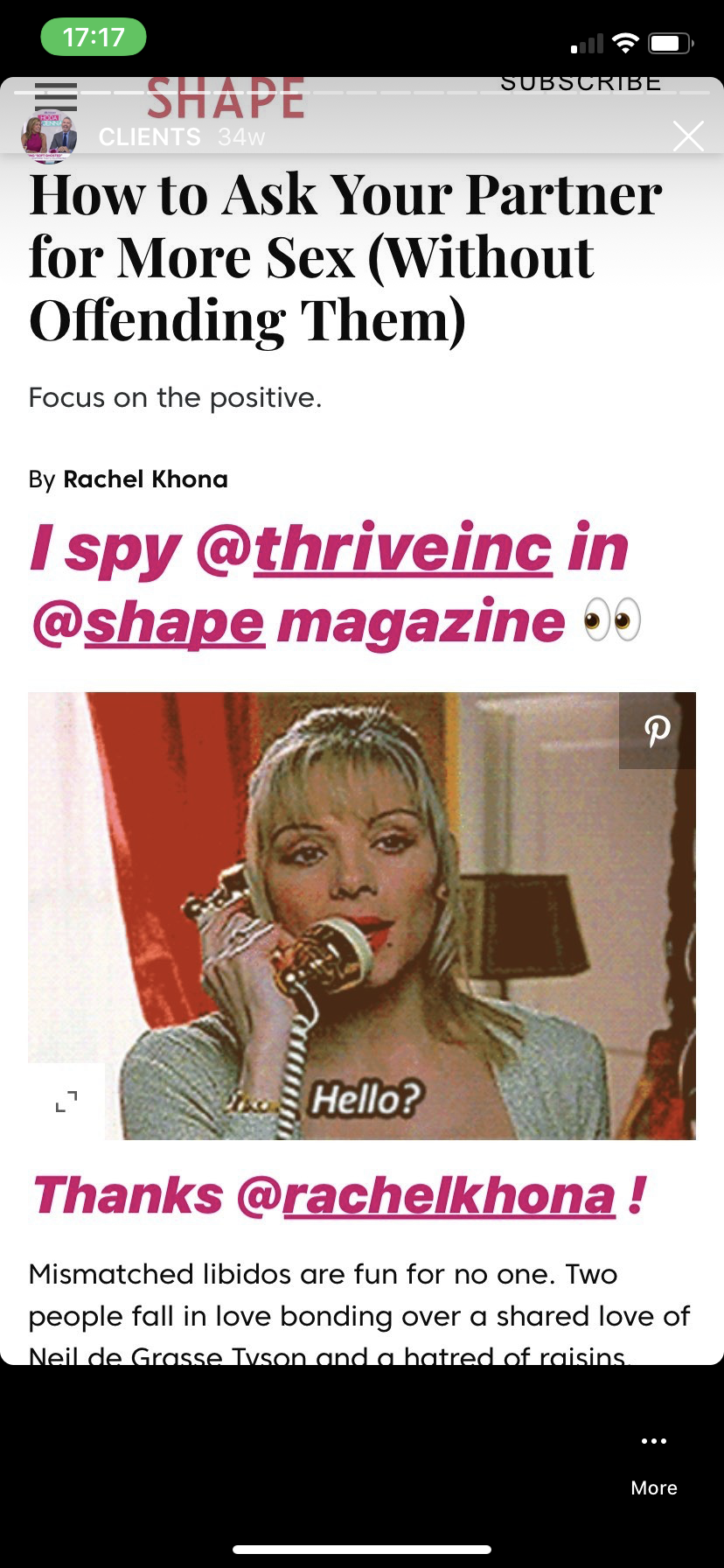Smart Ways to Leverage Your Media Coverage
I was in the middle of a pitch session when I saw texts from my clients that had recently launched a book “Cher! My sister said she just heard about us on The Today Show with Hoda!! What is happening? Can you find it?”
I immediately went digging for the clip and eventually found the mention that her sister had seen. For almost a full minute, Hoda Kotb had talked about their book, The Beauty of Conflict for Couples, while mentioning a specific strategy that they suggest within it. Not only that, the cover of the book had been on the screen the entire time and my clients who were co-authors were both mentioned by name.
The best part of all of this? We had never even pitched The Today Show.
This is an ideal press hit that all publicists, authors, and entrepreneurs pine for - the kind on national, noteworthy outlets that you don’t even try to get.
This story is also a perfect example of leveraging the press you’ve already landed to get more press. (We had pitched and landed a feature on NBC Better, an affiliate of The Today Show, and Hoda’s team had picked up that piece as a talking point for her segment.)
You can also leverage press to showcase your clout, land a speaking gig alongside an enviable lineup, or build your social media following.
Unfortunately, most entrepreneurs and authors stop at the initial feature or interview. They think that the media mention is the end of the game, but the truth is that it’s simply the first step.
So how can you leverage your media placements in the smartest, most strategic way so they work for you and continue to bring in clients, cash, and credibility?
Here are 30 ways to leverage podcast interviews, online features, or speaking engagements.
PODCASTS
Take a screenshot of your podcast interview and share it on your Instagram story. Make sure to @mention the host!
Take a screenshot of the podcast page on iTunes and circle your episode for another Instagram story shoutout.
Share an image of you and the podcast host with the title of your episode on your Instagram feed.
Pull out quotes from your interview and share them on social with a link back to the interview.
Mention your interview in your next few email newsletters.
Leave a review on the podcast page on iTunes. Good karma, ftw.
Get the logo for the show and the link to your episode and add it to your Press/Media page on your website.
Write a blog post about your takeaways from the interview.
Create a future task to mention the interview again in your newsletter or on social media (ideally, both!). You can frame it as “from the archives” or offer it as a secondary resource for the topic of that email.
Include it in your professional bio if it falls under name-dropping status.
FEATURES OR CONTRIBUTIONS
Snag a snippet of the contribution and create a blog post on your website with a link back to the original outlet.
Share the piece from the actual article to social media. - This shows on the magazine’s backend that the writer’s articles are well-received and makes her look good. Don’t forget to tag both the outlet and the writer if you can to build even more goodwill.
Take a static or video screenshot of your feature and share it on your IG story. Make sure to @mention the writer and the outlet!
If it’s a print feature, take a picture of you with the actual magazine for social media.
Include the outlet name to your professional bio with the phrasing, “Jenny’s work has been featured in SHAPE, O, The Oprah Magazine, and Vogue.”
Create quotes graphics from your feature and share them on your preferred social media platform with a link back to the interview.
Cultivate the connection you made! - Create a reminder to follow back up the writer and ask, “What’s your editorial calendar look like for the next few months? Is there any way that I can be helpful?”
Add the logo of the outlet to your homepage As Seen In bar, your Press page, and your Work With Me page. Put it everywhere and anywhere you need to for building trust.
When pitching yourself for future interviews, include a link to a specific interview or article where you were featured. For example, “If you want to get a feel for my voice or personality, HERE is an interview I did on SO Money with Farnoosh Torabi.”
When writing a new contribution, link back to past, related contributions you’ve written so you create a link trail for the reader to learn more about your work and expertise.
SPEAKING ENGAGEMENTS
Ask the speaking organizer if there is any possibility that you can sell or sign your book during the event. (Ideally, they would buy some from you for the event attendees!)
Organize a meet up at the conference that appeals to your target market.
Reach out to other speakers in the lineup prior to the conference and introduce yourself.
Grab video from your engagement or interview for your speaker’s reel.
Include video clips on your Media page.
Update your speaker bio to include where you’ve been interviewed. For example, “Sarah Lisa has shared her expertise on stages like FinCon, TEDx, and Alt Summit.”
Send the speaking organizer a thank you note and make sure to check in a few months after the event to see if they would be interested in having you back for next year.
Share your clips on social media.
Ask the speaking organizer if there are any other events that they think you would be a good fit for.
Write a blog post about your experiences attending the event, what you spoke about, and what it was like to be a speaker.


